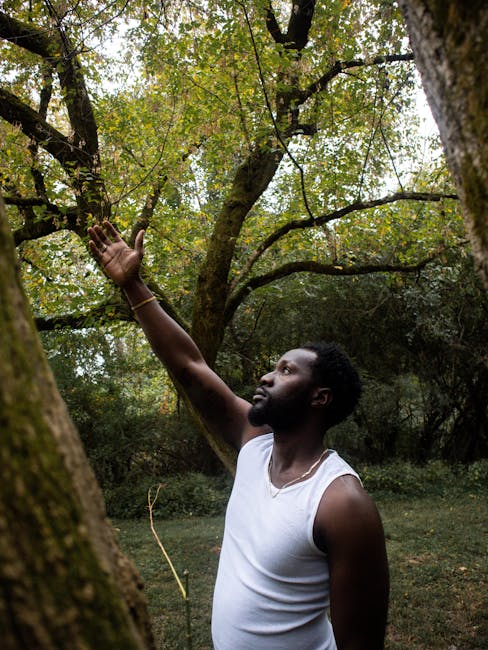How Does Self-reflection Contribute To Personal Growth?
Self-reflection is like holding up a mirror to your inner world—it helps you see who you are, where you’ve been, and where you’re headed. It’s a powerful tool that allows you to pause, take stock, and grow into the best version of yourself. But why is this so important? Because without reflection, life can feel like you’re running on a treadmill—busy, but not necessarily moving forward. Stick around, and we’ll explore how this simple yet profound practice can unlock your potential and lead to meaningful personal growth.
Key Takeaways
- Self-reflection helps you understand your thoughts, emotions, and actions.
- It enhances self-awareness, emotional intelligence, and decision-making.
- Regular reflection fosters personal growth and resilience.
- Tools like journaling and mindfulness can make self-reflection easier.
Understanding Self-Reflection
Definition and Importance
What is self-reflection?
Self-reflection is the practice of examining your thoughts, emotions, and behaviors to gain a deeper understanding of yourself. Think of it as a mental check-in—a moment to ask, “Why did I react that way?” or “What can I learn from this experience?”
It’s not about judging yourself harshly but about being curious and compassionate. This process helps you connect the dots between your actions and their outcomes, giving you clarity on what’s working and what’s not.
Why self-reflection matters for personal growth
Without self-reflection, it’s easy to repeat the same mistakes or miss opportunities for improvement. It’s like driving without a map—you might get somewhere, but it’s probably not where you intended to go. By reflecting, you can identify areas for growth, celebrate your wins, and course-correct when needed.
Types of Self-Reflection
Internal self-reflection (thoughts, emotions, behaviors)
Internal reflection focuses on your inner world—your thoughts, feelings, and actions. For example, you might ask yourself, “Why do I feel anxious in social situations?” or “What motivates me to keep going when things get tough?”
External self-reflection (interactions, relationships, environment)
External reflection looks outward, examining how you interact with others and your surroundings. Are your relationships healthy? Does your environment support your goals? This type of reflection helps you understand how external factors influence your growth.

The Role of Self-Reflection in Self-Awareness
Enhancing Self-Awareness
Understanding thoughts and emotions
Self-reflection shines a light on your inner workings. By understanding your thoughts and emotions, you can identify triggers, manage stress, and make better choices.
Recognizing behavioral patterns
Have you ever noticed yourself falling into the same unhelpful habits? Reflection helps you spot these patterns so you can break free from them.
Tools for Self-Awareness
Journaling as a reflective practice
Writing down your thoughts is like having a conversation with yourself. It’s a safe space to explore your feelings, set intentions, and track progress. If you’re curious about how journaling can deepen your self-reflection, check out this guide.
Mindfulness and meditation techniques
Mindfulness teaches you to be present, while meditation helps you observe your thoughts without judgment. Together, they create a powerful foundation for self-awareness.

Overcoming Challenges in Self-Reflection
Fear of Self-Discovery
Addressing discomfort with personal truths
Let’s face it—self-reflection can be uncomfortable. It’s not easy to confront your flaws or admit mistakes. But remember, growth often comes from discomfort.
Building courage to face vulnerabilities
Think of vulnerability as a muscle—the more you exercise it, the stronger it gets. Embracing your imperfections can lead to profound personal growth.
Developing a Consistent Practice
Setting aside time for reflection
Life gets busy, but self-reflection deserves a spot on your calendar. Even 10 minutes a day can make a difference.
Avoiding distractions and staying focused
Turn off your phone, find a quiet space, and give yourself the gift of undivided attention.

Self-Reflection as a Pathway to Emotional Growth
Improving Emotional Intelligence
Managing emotions effectively
When you understand your emotions, you can respond rather than react. This skill is invaluable in both personal and professional settings.
Understanding and empathizing with others
Self-reflection doesn’t just improve your relationship with yourself—it also enhances your ability to connect with others.
Emotional Regulation and Resilience
Benefits of daily emotional check-ins
Checking in with yourself daily helps you stay grounded and emotionally balanced.
Building resilience through reflective practices
Resilience isn’t about avoiding challenges; it’s about bouncing back stronger. Reflection helps you learn from setbacks and keep moving forward.

Self-Reflection and Decision-Making
Gaining Clarity and Perspective
Evaluating past decisions
Looking back on your choices can teach you valuable lessons. What worked? What didn’t? Use these insights to make better decisions moving forward.
Weighing options for future choices
Reflection helps you see the bigger picture, making it easier to weigh your options and choose wisely.
Creating a Personal Development Plan
Setting clear goals through reflection
By reflecting on what you truly want, you can set meaningful goals that align with your values. Learn more about this in this article.
Tracking progress and adjusting pathways
Life is dynamic, and so are your goals. Regular reflection helps you stay on track and adapt as needed.

Fostering Continuous Improvement Through Self-Reflection
The Role of Regular Reflection in Growth
Identifying areas for improvement
Reflection is like a flashlight—it illuminates areas that need attention.
Celebrating achievements and milestones
Don’t forget to pat yourself on the back! Recognizing your progress keeps you motivated.
Self-Reflection as a Catalyst for Transformation
Evolving and adapting to life changes
Life is full of twists and turns. Reflection helps you adapt and grow with each new chapter.
Embracing personal transformation
Think of self-reflection as a bridge between who you are and who you want to be.
Encouraging Creativity and Healing Through Self-Reflection
Unveiling Hidden Aspects of Oneself
Exploring creative expression
Reflection can spark creativity by helping you tap into your inner world.
Discovering new passions and talents
You might be surprised by what you uncover when you take the time to reflect.
Promoting Emotional Healing
Processing past experiences
Reflection allows you to make sense of your past and find peace.
Finding closure and moving forward
By reflecting, you can let go of what no longer serves you and embrace the future.

Self-reflection isn’t just a practice—it’s a lifestyle. It’s the key to unlocking your potential, building resilience, and living a more intentional life. So grab a journal, find a quiet spot, and start reflecting. You might just discover a version of yourself you never knew existed.
For more insights on personal growth, check out this article (source).
FAQ: How Does Self-reflection Contribute to Personal Growth? Let’s Explore Together!
What is self-reflection, and why is it important for personal growth?
Self-reflection is the process of examining your thoughts, feelings, and actions to gain a deeper understanding of yourself. It is important for personal growth because it helps you identify areas for improvement, recognize your strengths, and align your actions with your values and goals.
How does self-reflection help in identifying personal strengths and weaknesses?
Through self-reflection, you can objectively assess your behaviors and decisions. This process allows you to pinpoint what you excel at and areas where you may need improvement, fostering a clearer path to personal development.
Can self-reflection improve decision-making skills?
Yes, self-reflection enhances decision-making by encouraging you to analyze past choices and their outcomes. This helps you learn from your experiences, make more informed decisions, and avoid repeating mistakes.
How often should I practice self-reflection for it to be effective?
The frequency of self-reflection depends on your personal needs, but regular practice—such as daily, weekly, or after significant events—can help you stay mindful and continuously grow. Consistency is key to making it a meaningful habit.
What are some effective methods for self-reflection?
Effective methods include journaling, meditation, seeking feedback from others, and asking yourself thought-provoking questions. These practices can help you gain clarity and perspective on your thoughts and actions.
Can self-reflection help in managing stress and emotions?
Absolutely! Self-reflection allows you to identify the root causes of stress and understand your emotional triggers. By addressing these issues, you can develop healthier coping mechanisms and improve emotional well-being.
Is self-reflection a skill that can be learned and improved over time?
Yes, self-reflection is a skill that can be developed with practice. The more you engage in reflective practices, the better you become at analyzing your thoughts and behaviors, leading to deeper insights and growth.
How does self-reflection contribute to achieving personal goals?
Self-reflection helps you clarify your goals, assess your progress, and identify any obstacles in your path. By regularly reflecting, you can adjust your strategies and stay focused on achieving your aspirations.
Can self-reflection improve relationships with others?
Yes, self-reflection can improve relationships by helping you understand your own behaviors and how they affect others. This awareness fosters better communication, empathy, and the ability to resolve conflicts more effectively.
What are the potential challenges of self-reflection, and how can they be overcome?
Challenges include being overly critical of yourself or feeling uncomfortable confronting certain truths. These can be overcome by approaching self-reflection with compassion, focusing on growth rather than perfection, and seeking support if needed.



